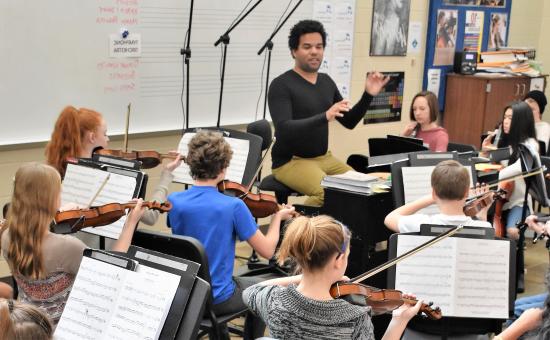The Every Student Succeeds Act versus No Child Left Behind: Opportunities for Local Control
The Every Student Succeeds Act (ESSA), new federal law replacing No Child Left Behind, returns education policy decisions back to where they belong – local educators, families and communities. ESSA offers student-centered policies with opportunities for educators to give input on major issues such as teacher evaluations, student testing time and additional measures for accountability apart from student test scores.
ESSA will help ensure that all students have the resources and supports they need to excel regardless of ZIP code. ESSA does away with the punitive Adequate Yearly Progress measurement under the former No Child Left Behind Act. States also now have flexibility to de-couple student test scores from evaluations and high-stakes consequences, as well as reduce student testing and replace ISTEP with a nationally recognized assessment.
The new law requires states to include at least one indicator of school success or student support in addition to existing measures, such as school climate and safety, educator and student engagement, access to Advanced Placement courses, career and technical education, fine arts, foreign language and physical education. ESSA also supports interventions to help schools improve rather than punishing them.
Make sure you get a seat at the table when these decisions are made. ISTA needs our local associations to take a leading role in implementation of ESSA, with voices from:
- Teachers
- Paraeducators
- Education Support Professionals (ESP)
- Librarian and Media Specialists
Does your local association have a team leader on ESSA issues?
8 Ways to Get Involved
- Participate in meetings with policymakers, such as local school board members, the Indiana Department of Education, legislators from your districts and your colleagues.
- Engage stakeholders – fellow educators, parents, community groups, civil rights groups, disability groups and coalitions.
- Encourage your local school boards to pass resolutions on ESSA that support reduced student testing time, de-coupling of high stakes consequences and student test scores from teacher evaluations and the support of additional indicators for accountability beyond student test scores.
- Submit a testing audit in your local district to determine how much time is spent on testing rather than instruction and student learning.
- Engage in a postcard campaign to fellow educators, parents and community groups centered on the reduction of over-testing our students.
- Stay in touch with ISTA staff about what is going on in your district regarding ESSA implementation.
- Stay up-to-date and actively participate in the upcoming 2019 legislative session.
The statewide ESSA implementation plan was approved by the U.S. Department of Education at the beginning of this year. Local educational plans will be submitted at a date to be determined by the Indiana Department of Education. Learn how you can involve your association in the local ESSA work. This document provides helpful vocabulary to look for as well as where your feedback can be implemented.
